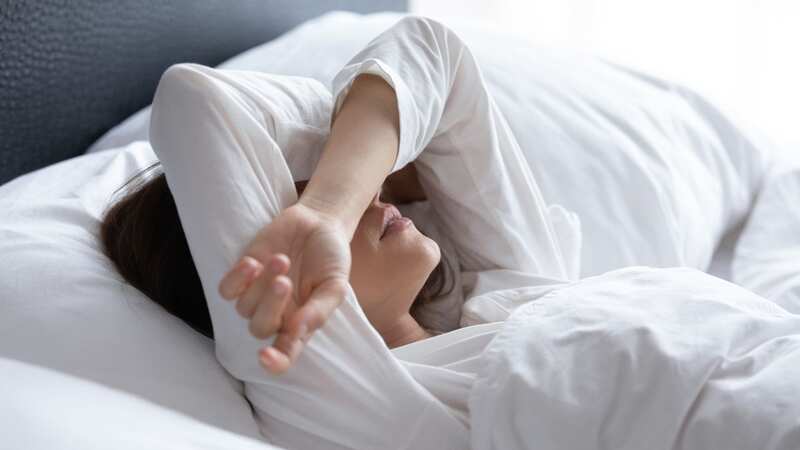Sleeping less than 5 hours a night may increase risk of depression, study says

Consistently sleeping less than five hours a night could increase your risk of depression, research suggests.
The link between poor sleep and ill mental health has been researched in the past, but so far, it has been unclear which problem tends to appear first. Now scientists have found evidence that consistent short sleep can be a precursor to developing depressive symptoms.
Researchers from UCL found that people with a stronger genetic predisposition to short sleep - less than five hours in a given night - were more likely to develop depressive symptoms over four to 12 years - but those with a greater genetic predisposition to depression were not more likely to have short sleep. The experts also found that the link was not exclusive to those who were genetically inclined towards sleeping for shorter periods, and people who regularly dozed for five hours or less - without the genetic association - were also more likely to have depression.
Lead author Odessa Hamilton, from the UCL Institute of Epidemiology and Health Care, said: "We have this chicken or egg scenario between suboptimal sleep duration and depression, they frequently co-occur, but which comes first is largely unresolved. Using genetic susceptibility to disease, we determined that sleep likely precedes depressive symptoms, rather than the inverse."
Researchers used genetic and health data from 7,146 people recruited by the English Longitudinal Study of Ageing (ELSA), with an average age of 65. Analysis of genetic and health data suggested that short sleep was associated with the start of depressive symptoms, like feeling sad or lonely.
 England star Joe Marler reflects on lowest point after fight with pregnant wife
England star Joe Marler reflects on lowest point after fight with pregnant wife
Senior author Dr Olesya Ajnakina, UCL Institute of Epidemiology and Health Care and the Institute of Psychiatry, Psychology and Neuroscience at King's College London, said: "Short and long sleep durations, along with depression, are major contributors to (the) public health burden that are highly heritable. Polygenic scores, indices of an individual's genetic propensity for a trait, are thought to be key in beginning to understand the nature of sleep duration and depressive symptoms."
When looking at non-genetic associations between depressive symptoms and sleep duration, the researchers also found that people sleeping five hours or less were 2.5 times more likely to develop depressive symptoms. And people with signs of depression were a third more likely to suffer from short sleep.
The study, published in Nature, Translational Psychiatry, also revealed a link between sleeping long and developing depressive symptoms. According to the findings, people who slept for more than nine hours were 1.5 times more likely to develop depressive symptoms than those who sleep an average of seven hours.
However, depressive symptoms were not associated with sleeping longer four to 12 years later, which corresponded to the genetic findings. Professor Andrew Steptoe, head of Behavioural Science and Health, UCL Institute of Epidemiology and Health Care, said: "Suboptimal sleep and depression increase with age, and with the worldwide phenomenon of population ageing there is a growing need to better understand the mechanism connecting depression and a lack of sleep.
"This study lays important groundwork for future investigations on the intersection of genetics, sleep, and depressive symptoms." People enrolled in the study had an average of seven hours' sleep a night.
More than 10 per cent slept for less than five hours a night at the start of the study period, rising to more than 15 per cent at the end of the study. The proportion of people classed as having depressive symptoms increased by about three percentage points, from 8.75 per cent to 11.47 per cent.
In the study, data on sleep and depressive symptoms were combined from two Elsa surveys conducted two years apart, as sleep duration and depression are known to fluctuate over time. Sleep duration and depression are both partly inherited from one generation to the next. Earlier studies have suggested depression is about 35 per cent heritable, and that genetic differences account for 40 per cent of the variance in sleep duration.
Read more similar news:
Comments:
comments powered by Disqus

































